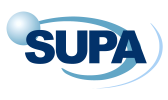These lectures will be delivered remotely.
In order to get specialist credit for the course, students will give a 20 minute presentation on a related topic. This presentation will be the only assignment. Students are also welcome to audit the course. In that case they would not give a presentation and would not get credit.
Lecturer: Derryck Reid
Institution: Heriot-Watt
Hours Equivalent Credit: 10
Assessment: Online Assessment
Course Summary
Institution: Heriot-Watt
Hours Equivalent Credit: 10
Assessment: Online Assessment
Course Summary
Pico/femtosecond techniques. Standing wave and travelling wave resonators. Active and passive modelocking schemes. Saturable gain and loss. Nonlinear optical effects for enhanced modelocking. Application examples and measurement techniques associated with ultrashort laser pulses.
Note: This is a short distance learning course operated by Heriot-Watt
University via their Vision virtual learning environment. It has a
formal accredited value of 5 SCQF credits. To complete the course
student must carry out an online assessment using the Vision system,
which means they must first register for an account. Details for doing
this appear on the mysupa page.
Lecturer: Gian-Luca Oppo
Institution: Strathclyde
Hours Equivalent Credit: 24
Assessment: Essay (60%) and Presentation (40%)
Course Summary
The course is beneficial to students interested in the interaction of laser light with atoms and materials. It provides useful theoretical and numerical skills that have become basics in many research fields in quantum optics, photonics, quantum information processes, light- matter interaction and their applications. Topics covered include: second quantization, raising and lowering operators, density matrix approach, the Lindblad form of decay rates, two and three level atoms, Rabi oscillations, electromagnetically induced transparency, coherent population trapping, enhanced refractive indices, slow light, sub-natural line widths, self-focusing, spatial solitons during propagation, light-matter interaction in optical cavities, Maxwell- Bloch equations, optical bistability, cavity solitons, parametric down- conversion and optical parametric oscillators.
Institution: Strathclyde
Hours Equivalent Credit: 24
Assessment: Essay (60%) and Presentation (40%)
Course Summary
The course is beneficial to students interested in the interaction of laser light with atoms and materials. It provides useful theoretical and numerical skills that have become basics in many research fields in quantum optics, photonics, quantum information processes, light- matter interaction and their applications. Topics covered include: second quantization, raising and lowering operators, density matrix approach, the Lindblad form of decay rates, two and three level atoms, Rabi oscillations, electromagnetically induced transparency, coherent population trapping, enhanced refractive indices, slow light, sub-natural line widths, self-focusing, spatial solitons during propagation, light-matter interaction in optical cavities, Maxwell- Bloch equations, optical bistability, cavity solitons, parametric down- conversion and optical parametric oscillators.
